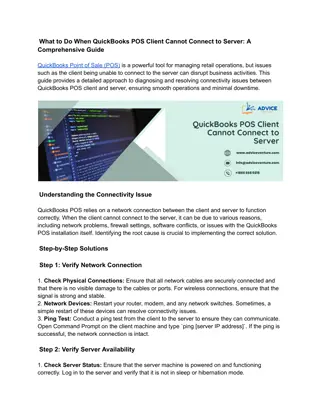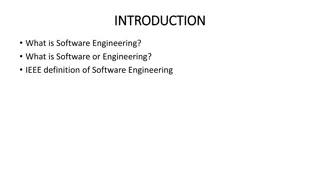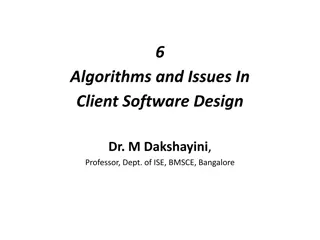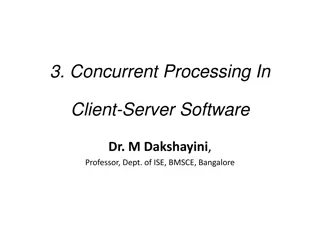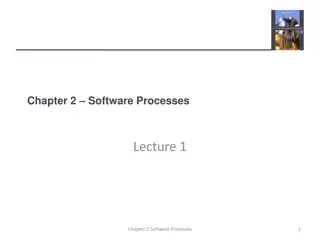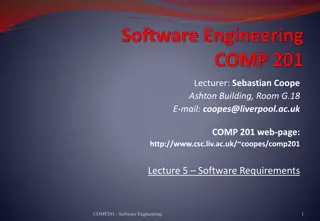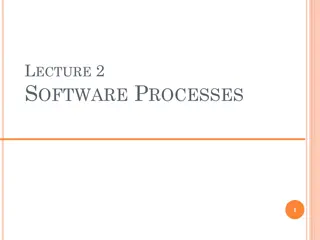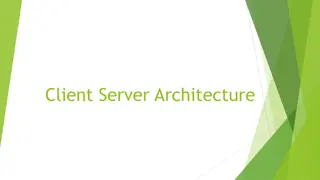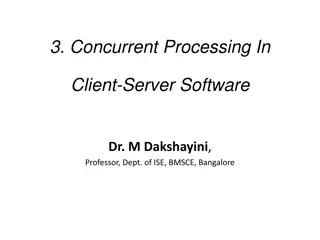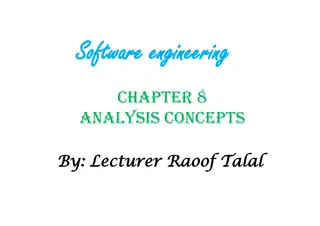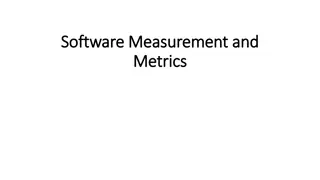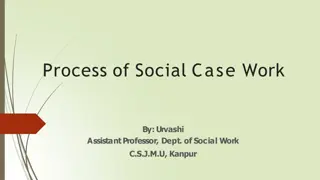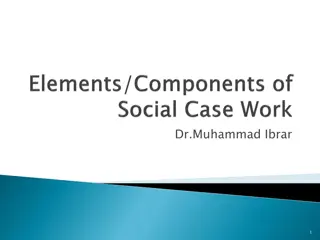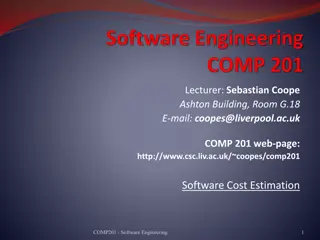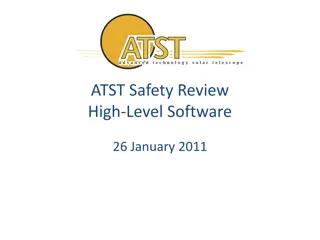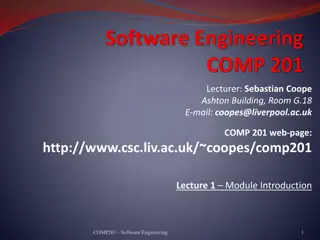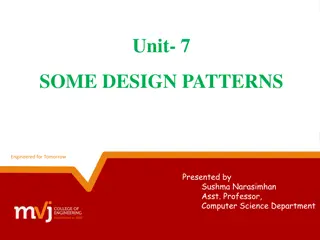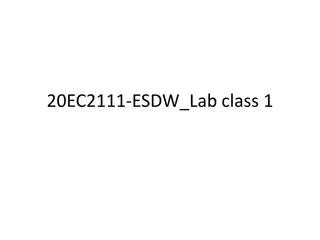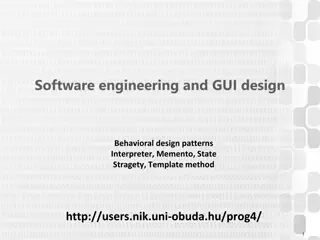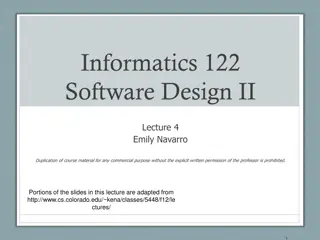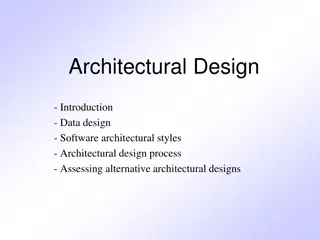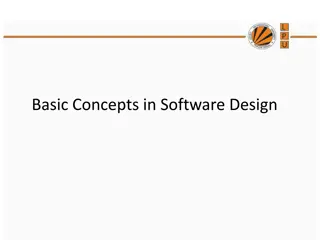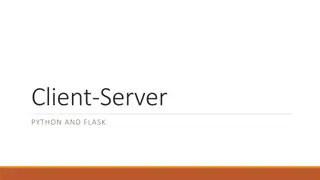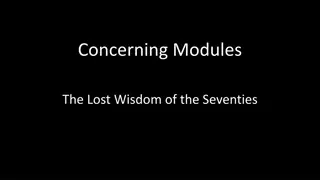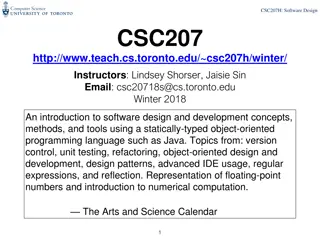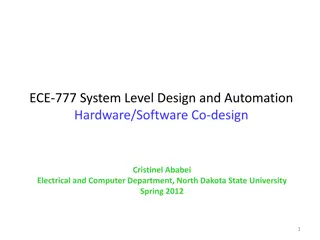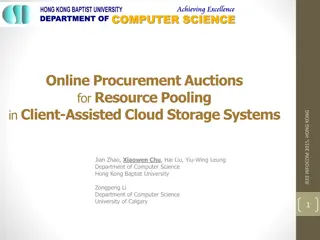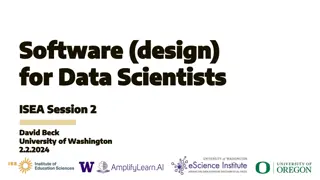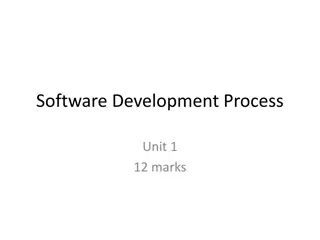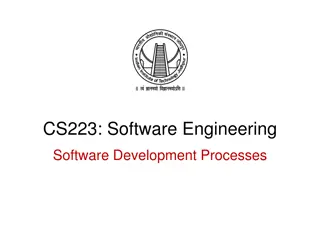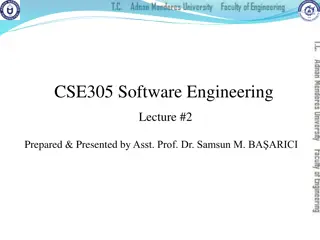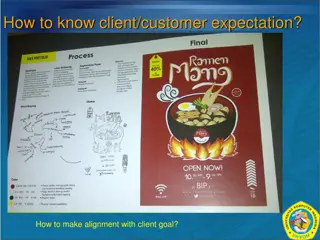Streamlining Account Opening Process with Adroit E-KYC Software
Adroit Financial Services Pvt. Ltd offers a seamless paperless account opening experience through their E-KYC software. The process involves enabling location services, verifying client details, and ensuring secure document handling. Clients can conveniently open accounts online by following the ste
2 views • 17 slides
What to Do When QuickBooks POS Client Cannot Connect to Server_ A Comprehensive Guide
Struggling with QuickBooks POS client connectivity issues? Our comprehensive guide offers detailed steps to resolve problems when QuickBooks POS client cannot connect to the server. Learn how to check network connections, configure firewall settings, and verify server configurations to restore seaml
1 views • 3 slides
Software Engineering: Concepts and Characteristics
Software engineering involves the application of scientific principles and methods to develop efficient, reliable software products. The need for software engineering arises due to factors like large software size, scalability, cost concerns, dynamic nature, and quality management. Good software exh
4 views • 25 slides
Algorithms and Issues in Client Software Design
Explore the fundamentals of client software design, including the underlying algorithms, client architecture, and methods for identifying server locations. Learn how applications become clients, interact with TCP/IP protocols, and simplify client-side operations compared to server software.
6 views • 49 slides
Concurrent Processing in Client-Server Software
Concurrency in client-server software involves simultaneous computing processes among multiple users or processes within a network. Dr. M. Dakshayini explains the importance of concurrency in distributed computing and its various forms such as time-sharing and multiprocessing. The design and impleme
4 views • 26 slides
Software Processes and Models
Software processes are structured activities essential for software system development, involving specification, design, validation, and evolution. Various process models and approaches like the Rational Unified Process and agile methods are discussed, highlighting the importance of adaptability in
2 views • 105 slides
Software Requirements and Design Principles
Software requirements play a crucial role in defining what a system should do, while the design describes how it achieves those goals. This lecture series covers the concepts of user and system requirements, techniques for describing system requirements, organizing software requirements in a documen
1 views • 30 slides
New Accounts Rules and Client Money Safeguarding Overview
Explore the latest SRA Accounts Rules introduced on 25th November, emphasizing clearer standards, a revised definition of client money, and requirements for safeguarding and managing client funds. Understand the obligations and key considerations in handling client money to ensure compliance and fin
1 views • 26 slides
Software Processes and Models
This lecture discusses software processes, models, and activities involved in requirements engineering, software development, testing, and evolution. It covers topics such as process models, computer-aided software engineering (CASE) technology, software specification, design, validation, and evolut
2 views • 25 slides
Client-Server Architecture
Client-server architecture is a computing model where a central server hosts and manages resources and services for client computers over a network. There are different types of clients and servers, each with unique characteristics and roles. This architecture offers various advantages and disadvant
3 views • 15 slides
Concurrent Processing in Client-Server Software
Concurrency in client-server software allows for simultaneous computing, involving multi-user systems, time-sharing, and multiprocessing. This concept is vital in distributed computing, occurring among clients and servers, as well as within networks. Developers design client programs without conside
4 views • 26 slides
Requirements Analysis in Software Engineering
Requirements analysis is a crucial task in software engineering that bridges the gap between system engineering and software design. It involves specifying software's operational characteristics, interface with other system elements, and constraints it must meet. Through elicitation processes like m
10 views • 30 slides
Software Measurement and Metrics in Software Engineering
Software measurement plays a crucial role in assessing the size, quantity, and quality of software products and processes. It involves direct and indirect measurement methods to monitor and improve software quality, predict future outcomes, and manage project budgets and schedules. Software metrics
0 views • 8 slides
Software Engineering Design Principles and Concepts
The chapter discusses the essential principles and concepts in software design, highlighting the four key design models - data design, architectural design, interface design, and component-level design. It emphasizes the importance of traceability to the analysis model, minimizing the gap between so
2 views • 36 slides
The Process of Social Case Work in Social Work Practice
Social case work involves a systematic process where a client seeks professional help through a case worker. This process begins with intake, where the client's needs and problems are assessed, followed by a psycho-social study to understand the client's adaptation to stress. The case worker probes
1 views • 24 slides
Social Case Work: Elements and Process
Social case work, as defined by H.H. Perlman, is a process used by human welfare agencies to assist individuals in coping with problems in social functioning. The fundamental elements include the person/client, problem, agency, process, and professional representative (social worker). The client, wh
0 views • 14 slides
Principles of Effective Client-Worker Relationship in Social Work
Understanding the principles of acceptance, communication, individualization, participation, confidentiality, self-awareness, and self-discipline is vital in establishing a positive client-worker relationship in social work. The initial interaction between the client and worker sets the tone for mut
0 views • 11 slides
Software Cost Estimation in Software Engineering
Software cost estimation in software engineering involves predicting the resources required for a software development process. It includes fundamental estimation questions, software cost components, costing and pricing considerations, software pricing factors, and programmer productivity assessment
0 views • 30 slides
ATST Safety Review High-Level Software Overview
This document provides an overview of the high-level software components involved in the ATST Safety Review conducted on 26th January 2011. It includes details on the Telescope Software Control Systems, Observatory Software Control Systems, and Instrument Software Control Systems, along with respons
13 views • 15 slides
Software Engineering: An Overview by Lecturer Sebastian Coope
Explore the world of software engineering with Lecturer Sebastian Coope in this informative module introduction. Discover the importance of structured and disciplined approaches in making software, the challenges in software development, and the necessity of software engineering in handling complex
5 views • 37 slides
Design Patterns for Software Development
Explore the world of design patterns in software development, including structural decomposition, organization of work, access control, and communication patterns. Learn the differences between design and architectural patterns, and how they influence software systems. Discover categories of design
3 views • 107 slides
CSSE 375: Software Construction and Evolution - Course Overview and Final Exam Preview
Delve into the world of software construction and evolution with CSSE 375. Explore topics such as software degradation, information loss due to change, and the art of avoiding pitfalls in software development. The course covers essential aspects like software change, refactoring, program understandi
0 views • 21 slides
Electronic Design Automation with Proteus Software Suite
Dive into the world of electronic design automation with the Proteus Design Suite, a powerful software tool primarily used by engineers and technicians to create schematics and printed circuit boards. Learn about the software's features, installation procedures, and PCB design capabilities, along wi
0 views • 22 slides
Guide to Behavioral Design Patterns in Software Engineering and GUI Design
Learn about key behavioral design patterns such as Interpreter, Memento, State, Strategy, and Template Method in software engineering and GUI design. Understand their purposes, implementation techniques, and when to use them effectively. Explore how these patterns enhance the design and functionalit
0 views • 42 slides
Software Design Patterns: Understanding Core Solutions
Explore the world of software design patterns in this lecture, delving into fundamental principles, checklists for overall design, class design, principles, and strategies. Learn how design patterns offer reusable solutions to common problems, enhancing your ability to create efficient and adaptable
0 views • 54 slides
Software Architectural Design in Computer-Based Systems
Exploring the importance of software architectural design in computer-based systems, this content covers key aspects such as data design, software architectural styles, the architectural design process, and assessing alternative designs. It delves into definitions, the architectural design process,
0 views • 45 slides
Basic Concepts in Software Design
Software design involves transforming customer requirements into a form suitable for implementation, with activities categorized into preliminary and detailed design stages. High-level design focuses on module identification and control relationships, while detailed design entails defining data stru
1 views • 24 slides
Client-Server Communication with Flask in Python
Explore the basics of implementing a client-server architecture using Flask in Python. Learn how to set up a server, create APIs, and interact with a client application. The process involves handling API calls, directing requests, and returning data to the client through the server.
1 views • 10 slides
Mitigating Client Frame Tracking in IEEE 802.11 Networks
Unencrypted and predictable frame fields in IEEE 802.11 networks can lead to client frame tracking, compromising user privacy. The Client Frame Tracking Countermeasures (CFTC) proposal aims to prevent tracking across epoch boundaries by obfuscating critical fields like PN, SN, and AID. Each epoch, l
0 views • 17 slides
Insights from NATO Software Engineering Conferences and The Software Crisis of the Seventies
Exploring the challenges faced in software engineering during the 1970s, including issues such as project delays, inefficiencies, and the critical need for reliable, high-quality software. Insights from the NATO Software Engineering Conferences shed light on the struggle to meet increasing modern so
0 views • 46 slides
CSC207H Software Design Course Overview
Winter 2018's CSC207H Software Design course focuses on software design and development concepts, methods, and tools using Java. The course covers topics like version control, unit testing, refactoring, object-oriented design, design patterns, and more. Students are expected to spend 8-10 hours per
0 views • 30 slides
Hardware/Software Co-design in System-Level Design and Automation
Hardware/software co-design involves designing special-purpose systems that combine application-specific ICs with software procedures to meet system-level objectives efficiently. It aims to enhance predictability, performance, power efficiency, and size optimization in embedded system designs. The p
0 views • 42 slides
Online Procurement Auctions for Resource Pooling in Client-Assisted Cloud Storage Systems
This study explores the use of online procurement auctions in client-assisted cloud storage systems to improve resource pooling and manage cloud outages. It discusses the benefits of client assistance, cloud storage services, common cloud outages, and potential solutions like Cloud Federation and Cl
0 views • 27 slides
The Importance of Software Design for Data Scientists
Today's ISEA Session 2 with David Beck from the University of Washington delves into the critical role of intentional software design for data scientists. The session covers the software design approach, user-centric design stories, use cases, components, testing strategies, and the benefits and dra
1 views • 76 slides
Software Bingo_ A Game-Changing Addition to Your Online Casino
Discover how software bingo, bingo game software, professional bingo software, software for bingo, pc bingo games software can enhance your online casino and boost player engagement.\n\nSource>>\/\/ \/bingo-software\n\n
1 views • 4 slides
The Essence of Software Development Process
Software is a vital component in today's technology-driven world. It consists of instructions, data structures, and descriptive information that enable the functioning of computer programs. Unlike hardware manufacturing, software development is an engineering process that undergoes changes and deter
0 views • 74 slides
Software Engineering Fundamentals
Explore the significance of software in modern economies, the attributes of good software, software engineering principles, software processes, and process models. Learn how software engineers ensure functionality, maintainability, dependability, efficiency, and usability in software development.
0 views • 25 slides
Software Engineering and Development Processes
Explore the key concepts of software engineering, including misconceptions, legacy software, and development phases. Learn about professional responsibilities, the need for software processes, the ETVX model, and different properties of software processes. Discover the components of software process
1 views • 57 slides
Modern Approach to Systems Analysis and Design in Software Engineering
This lecture covers various topics in software engineering, including system analysis and design, software process models, system development life cycle, coping with change, and process improvement. It discusses the software process, process activities, software process models, and software process
0 views • 91 slides
Client Expectations and Aligning with Business Goals
Effective strategies for understanding client/customer expectations and aligning them with business goals are crucial for success in IT-Design projects. By focusing on the client's needs and vision, IT professionals can elevate design value, improve timing and production processes, and aim for compr
0 views • 33 slides

